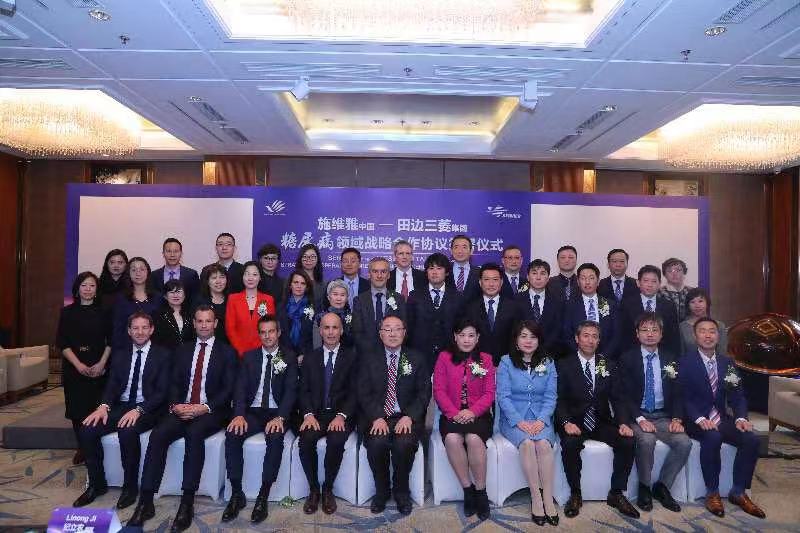Type 2 diabetes treatment to hit Chinese market


Servier China and Mitsubishi Tanabe Group has recently signed an exclusive strategic agreement to promote the type 2 diabetes drug Tenelia. Servier China will provide support for the drug's pre-market work in Chinese mainland and be responsible for the post-market medical promotion of the leading international hypoglycemic drug to bring one more highly efficient hypoglycemic treatment to the vast number of type 2 diabetes patients in China, and meet the need for personalized high-quality innovative drug treatment among different patients.
The prevalence of type 2 diabetes in Chinese adults has reached 10.9%. If left unchecked, the number of patients suffering from diabetes in China will increase to 150 million by 2040. The rate of diagnosis and treatment is only about a third, and more than half of patients who are treated do not reach the level of blood sugar control recommended by physicians. Thus, further effective glucose reduction is still the primary goal of diabetes prevention and control.
Hypoglycemia is understood to be one of the most common adverse reactions, significantly increasing the risk of microvascular disease and large vascular disease. Among people with type 2 diabetes in China, the prevalence of nephropathy is 30-50%, an average reduction of 16 years compared to normal life expectancy and a three-fold increase in the risk of death.
"Kidney function, hypoglycemia and weight gain, which appear to be irrelevant, are a vicious cycle that hamper blood sugar levels," said Professor Ji Linong from the Department of Endocrinology at Peking University People's Hospital. "Because hypoglycemia and weight gain are among the factors that affect compliance, renal insufficiency affects the choice of hypoglycemic drugs, while substandard blood sugar can accelerate the progression of diabetic nephropathy. Ultimately, it creates a heavy burden on patients.
Considering treatment objectives, preventing complications and improving quality of life, taking the individualized treatment needs of patients as the core consideration is increasingly becoming the standard for the development of treatment strategies for diabetes patients."
In recent years, the advantages of DPP-4 inhibitor in single-drug and combined therapy have gradually grown in prominence. DPP-4 can inactivate glucagon like peptide-1, a hormone excreted from the gastrointestinal tract in response to food ingestion. It can improve the multiple pathophysiological mechanism of type 2 diabetes mellitus, and it is safe, efficient and widely used. It has also successfully deciphered the malignancy of the blood sugar standard and become the selected drug recommended by the guidelines for first line and dual-drug treatment.

































